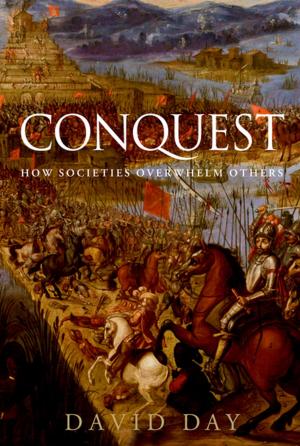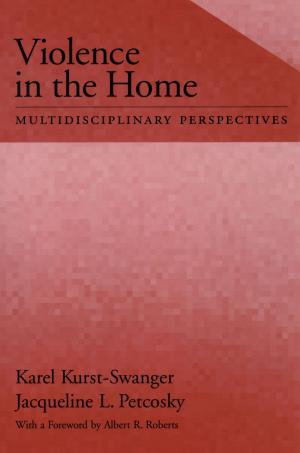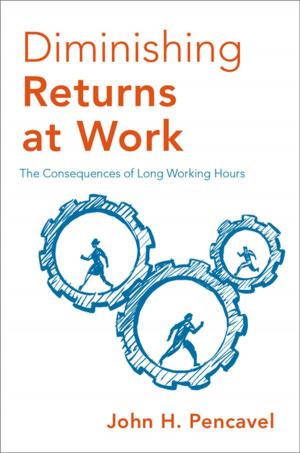Welfare, Work, and Poverty
Social Assistance in China
Nonfiction, Social & Cultural Studies, Social Science, Social Work, Sociology| Author: | Qin Gao | ISBN: | 9780190682125 |
| Publisher: | Oxford University Press | Publication: | March 29, 2017 |
| Imprint: | Oxford University Press | Language: | English |
| Author: | Qin Gao |
| ISBN: | 9780190682125 |
| Publisher: | Oxford University Press |
| Publication: | March 29, 2017 |
| Imprint: | Oxford University Press |
| Language: | English |
Welfare, Work, and Poverty provides the first systematic and comprehensive evaluation of the impacts and effectiveness of China's primary social assistance program -- Minimum Livelihood Guarantee, or Dibao -- since its inception in 1993. Dibao serves the dual function of providing a basic safety net for the poor and maintaining social and political stability. Despite currently being the world's largest welfare program in terms of population coverage, evidence on Dibao's performance has been lacking. This book offers important new empirical evidence and draws policy lessons that are timely and useful for both China and beyond. Specifically, author Qin Gao addresses the following questions: · How effective has Dibao been in targeting the poor and alleviating poverty? · Have the Dibao recipients been dependent on welfare or able to move from welfare to work? · How has Dibao affected recipients' consumption patterns and subjective well-being? · Do they use the Dibao subsidy to meet survival needs (such as food, clothing, and shelter) or invest in human capital (such as health and education)? · Are they distressed by the stigma associated with receiving Dibao or do they become more optimistic about future and enjoy greater life satisfaction because of the Dibao support? · And finally, what policy lessons can we learn from the existing evidence in order to strengthen and improve Dibao in the future? Answers to these questions not only help us gain an in-depth understanding of Dibao's performance, but also add the Chinese case to the growing international literature on comparative welfare studies. Welfare, Work, and Poverty is essential reading for political scientists, economists, sociologists, public policy researchers, and social workers interested in learning about and understanding contemporary China.
Welfare, Work, and Poverty provides the first systematic and comprehensive evaluation of the impacts and effectiveness of China's primary social assistance program -- Minimum Livelihood Guarantee, or Dibao -- since its inception in 1993. Dibao serves the dual function of providing a basic safety net for the poor and maintaining social and political stability. Despite currently being the world's largest welfare program in terms of population coverage, evidence on Dibao's performance has been lacking. This book offers important new empirical evidence and draws policy lessons that are timely and useful for both China and beyond. Specifically, author Qin Gao addresses the following questions: · How effective has Dibao been in targeting the poor and alleviating poverty? · Have the Dibao recipients been dependent on welfare or able to move from welfare to work? · How has Dibao affected recipients' consumption patterns and subjective well-being? · Do they use the Dibao subsidy to meet survival needs (such as food, clothing, and shelter) or invest in human capital (such as health and education)? · Are they distressed by the stigma associated with receiving Dibao or do they become more optimistic about future and enjoy greater life satisfaction because of the Dibao support? · And finally, what policy lessons can we learn from the existing evidence in order to strengthen and improve Dibao in the future? Answers to these questions not only help us gain an in-depth understanding of Dibao's performance, but also add the Chinese case to the growing international literature on comparative welfare studies. Welfare, Work, and Poverty is essential reading for political scientists, economists, sociologists, public policy researchers, and social workers interested in learning about and understanding contemporary China.















